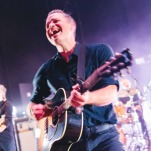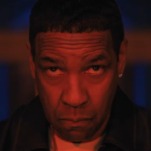Singer/Songwriter: Separated by More Than a Slash
The Curmudgeon: Questioning Assumptions in Popular Music
Rodney Crowell once described his career to me like this: “I developed quickly as a songwriter, slowly but surely as a producer, but the last thing that came into focus was the performing.” What struck me was the distinction he made between singing and songwriting, as if the two activities were so different that they needed to be considered separately. He made me realize that the slash in the middle of the phrase, “singer/songwriter,” is the most tenuous, unexamined, over-hyped piece of punctuation in American music.
The folk-music and Americana scenes operate on the assumption that vocalists are always better off singing their own material and that songwriters are the best vehicle for their own creations. These claims are often accompanied by disparaging comments about Music Row’s and Tin Pan Alley’s “artificial” separation of singers and songwriters.
But is that assumption really valid? Are we really better off now that Emmylou Harris and Bonnie Raitt are singing their own compositions? Are we better off that John Prine, Kris Kristofferson and Robert Earl Keen sing their own songs rather than turning them over to someone like George Strait or Jimmie Dale Gilmore? Would we really want Bob McDill to sing his own songs and Don Williams to write his?
Crowell’s comment reminded me of what Phil Alvin told me back in 1986: “It wasn’t until the ’60s that people got hip to this publishing thing, and what happened then? That’s when you saw the singer/songwriter take over, because that’s how they could make money. But if the singer/songwriter thing had always been around, you would never have heard of Elvis Presley or Bing Crosby or Jackie Wilson.
“There was all this pressure for people to sing their own songs, but it’s very rare that someone can be good at both singing and writing songs. So we ended up with a lot of good singers singing bad songs and a lot of bad singers singing good songs—or more often, a lot of mediocre singers singing mediocre songs.”
In Alvin’s own group, the Blasters, he did the singing and his brother Dave did the songwriting, a division of labor also found in The Band. There Robbie Robertson did most of the writing but left the singing to Levon Helm, Rick Danko and Richard Manuel—and wisely so, as later history revealed. Something similar happened in the Grateful Dead and Los Lobos, where Robert Hunter and Louis Perez wrote most of the lyrics but never took a lead vocal. These four bands recognized that performing involves an entirely different set of skills than creating, and the ability to do one tells us nothing about the ability to do the other.
Performance requires certain physical assets—vocal cords that can hit notes precisely with sufficient power, fingers that can manipulate instruments with agility—but it also requires a certain psychological approach. A performer has to live in the moment, pouring out one’s technical skills and emotional interpretation in real time without any hesitation or second-guessing. The more one can throw oneself into the immediate present, the more impact a performer will have on an audience.
-

-

-

-

-

-

-

-

-

-

-

-

-

-

-

-

-

-

-

-

-

-

-

-

-

-

-

-

-

-

-

-

-

-

-

-

-

-

-

-








































